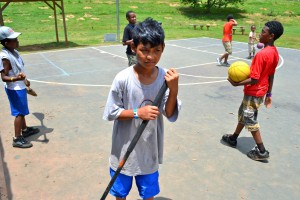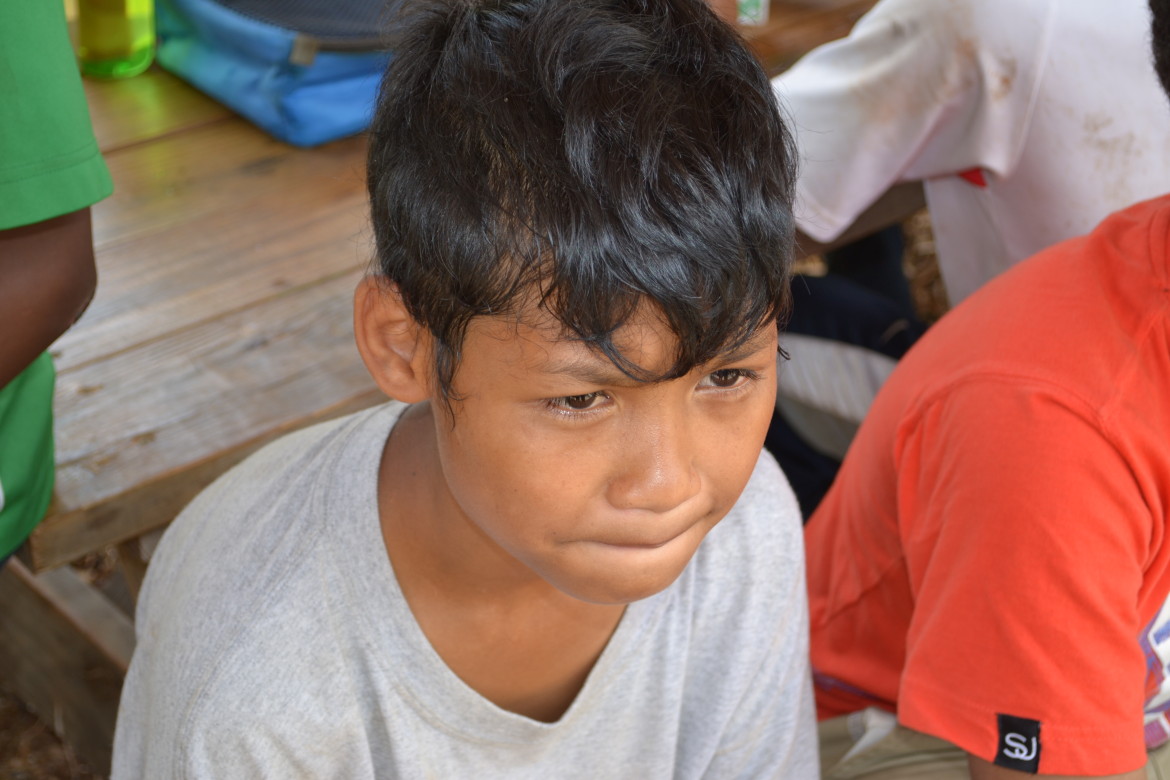
Eeco Kler
CLARKSTON, Ga., -- Tha Htoo Klo looked at the crime scene from a distance. The man shot was wearing the same color shirt as his brother. The boy said, “I prayed in my heart this is not my brother, but then the detective came and knocked on my door, and he told me -- yes, my brother was shot.”
Tha Htoo had escaped the grip of the brutal military junta that rules his native Myanmar. He also survived the refugee camp on the Thai border. Tha Htoo, now 29, has put all these dangers behind him, but after he arrived in this community just east of Atlanta in 2008, he found that safety still eluded him.
His brother, 20-year-old Pa Lee, was gunned down last August. Community activists believe that the shooting was motivated by anti-immigrant sentiment from locals. However, the unidentified assailant(s) were never found.
His is not an unusual story in this town of about 7,000, a place that has become a landing for many a refugee from war-torn countries around the world, something that led The New York Times to call it, “the most diverse square mile in America.” And his plight is similar to that of many American-born youth and their families, struggling with violence in their neighborhoods. But young refugees in Clarkston do face the added burden of confronting dangers in a strange land, where they often have little understanding of the society and the justice system.
This small Southern town was chosen by refugee resettlement agencies, such as the International Rescue Committee (IRC), for its low cost of living, its access to public transportation and the fact that it is commuting distance to downtown Atlanta.
For years now, the IRC and others have been helping to make this once rural, white and very Southern place, a home to refugees from everywhere Somalia to Bosnia.
In recent years a number of groups have stepped up to help the many refugee children of Clarkston.
The Friends of Refugees, a local non-profit, for example, is running the “Summer Spectacular” camp at a local community center this summer for area youth.
Community leaders say the program and others like it were created out of a concern for the safety of the children.
Scott Kelley, the Friends of Refugees Executive Director, said, “There are gangs in the community -- you know kids are on the street, and we want to make sure there is something constructive for them to do.”
There are up to 150 area children in the summer camp, and Kelley has turned away half that many, already, due to limited space.
 Eeco Kler, 13, though, has been lucky. Another refugee from Myanmar, and a close friend of Pa Lee, he has been coming to this camp for the past three summers.
Eeco Kler, 13, though, has been lucky. Another refugee from Myanmar, and a close friend of Pa Lee, he has been coming to this camp for the past three summers.
The slight-built Eeco, fancies himself a professional soccer player someday, although he says that reading is one of his favorite parts of the camp.
Summer camps can help refugee children, who are often recovering from trauma, say experts.
According to local clinical psychologist Dr. Gus Kaufman, “there is no simple formula,” to helping refugee children. But Kaufman points out that people exposed to violence can become violent to others or themselves, if they do not have a way to deal with it. He believes programs such as Summer Spectacular can help, as can counseling.
It can also ready them for other challenges, such as gaining an education.
This is where non-profit organizations, such as Friends of Refugees and the Clarkston Community Center, step in. Kelley said, “…many of the kids (in the summer camp) are behind in school, or they’re new to America, so we at least want to try to get them caught up.”
During the school year the community center offers an after school program with tutoring in multiple subjects, much of which, in practice, involves teaching English.
The Friends of Refugees camp fills a void in the summer, but unfortunately most of the students from the after school program, during the school year, have not made it into the summer camp. Non-profits in this area must collaborate because of finite resources, but much falls through the cracks in the process, says Kelley.
It is a pivotal time for these children, whose choices can mean life and death, he says.
For Kelley, he’s doing what he can to make life an easier choice for them, but he is also working for what you might refer to as the greater good.
The point of the program after all, as Kelley put it, is to make them “contributing members of our society.”

Beautifully written. You can be assured that whatever time you have to give to help refugee families settle into their new home here in the US will be time well spent. A little help for those faced with such difficult circumstances will make a big difference. Try it and see!
Well written and very informative. Its amazing how the things we sometimes take for granted in life are sometimes the things that others cant live without. Keep up the good work because like the old saying goes, “Knowing is half the battle.”